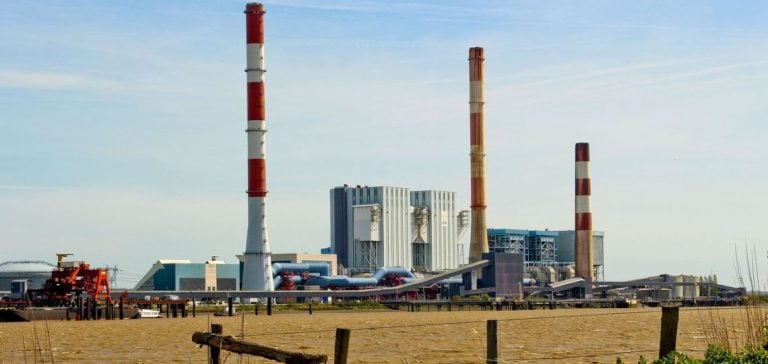EDF is considering abandoning the project to convert the Cordemais (Loire-Atlantique) coal-fired power plant to biomass, a project dubbed Ecocombust.
According to the CGT, the French electricity company has informed the union of its intention to halt the project following unsuccessful negotiations with Paprec, the project’s main partner, and the absence of industrial and economic support from the French government.
The project, initially designed to reduce dependence on fossil fuels, had been relaunched in 2022 after an initial abandonment in 2021 on cost grounds.
However, EDF is tempering these statements, claiming that no definitive decision has yet been taken.
The Ecocombust project aims to transform the Cordemais power plant into a facility running on pellets made from class B wood waste. This lightly treated waste, often derived from furniture wood, is an alternative energy source that will enable the plant to cease using coal by 2027.
The Cordemais power plant plays a key role in securing the electricity grid in western France, particularly in view of the intermittent nature of renewable energies such as wind and solar power.
A situation that worries local councillors
In response to this announcement, senators Ronan Dantec and Karine Daniel, both from Loire-Atlantique, have issued a joint statement expressing their concerns.
In their view, halting the Ecocombust project would be a major strategic error for the region’s energy future.
In their view, the conversion of the plant to biomass is essential not only to secure the region’s electricity supply, but also to maintain a promising international industrial sector.
In many countries, coal-fired power plants are still in operation, and Class B wood deposits offer a viable alternative for reducing CO2 emissions.
The Cordemais plant is one of the last two coal-fired power plants in France, along with Saint-Avold in Moselle.
In September 2023, President Emmanuel Macron had announced that both sites would be fully converted to biomass by 2027, as part of France’s commitments to reduce greenhouse gases.
EDF’s announcement could therefore call this objective into question, at a time when France is seeking to accelerate its energy transition.
What are the alternatives for Cordemais?
If the Ecocombust project is abandoned, EDF is proposing to convert the site into a pipe manufacturing plant, managed by Framatome, its nuclear subsidiary.
This project could create around 200 jobs on the Cordemais site, compared with the 400 currently linked to the coal-fired power plant.
The CGT strongly criticizes this option, considering it insufficient to compensate for the loss of jobs and industrial know-how linked to electricity production.
The question of securing the power grid remains crucial.
With the gradual closure of coal-fired power plants and the rise of renewable energies, France faces the challenges of intermittency and storage.
Local players are concerned about the risk of power shortages, particularly in winter, when demand is highest.
Shutting down Cordemais without a clear energy alternative could exacerbate this situation.
A lack of support from the French government pointed out
The CGT stresses that the lack of government support for this project is one of the main reasons for the stalemate.
The union points out that the Ecocombust project cannot come to fruition without a financial and industrial commitment from the public authorities.
This criticism is shared by local elected representatives, who criticize the government for not investing enough in the development of the biomass sector.
Yet the energy transition requires massive investment to transform existing infrastructures and develop new technologies.
At the same time, General Electric’s recent announcement of 360 job cuts at a wind turbine blade factory in Loire-Atlantique reinforces fears of industrial disengagement in the region.
This context of industrial restructuring highlights the difficulties encountered by France in planning and financing a coherent renewable energy policy.
A strategic project for the future of energy
The Ecocombust project represents a strategic challenge for France’s energy future.
The conversion of coal-fired power plants to biomass is one of the solutions envisaged to achieve the decarbonization targets set by law.
Relying on local resources such as class B wood, this transition would make it possible to valorize waste while reducing greenhouse gas emissions.
However, the abandonment of this project by EDF could compromise these ambitions.
The decision to convert Cordemais into an industrial plant, while creating jobs, does not offer an immediate solution to the problem of securing the power grid.
What’s more, it sends out a negative signal to investors and players in the renewable energies sector, who are expecting a more proactive policy from the French government.






















